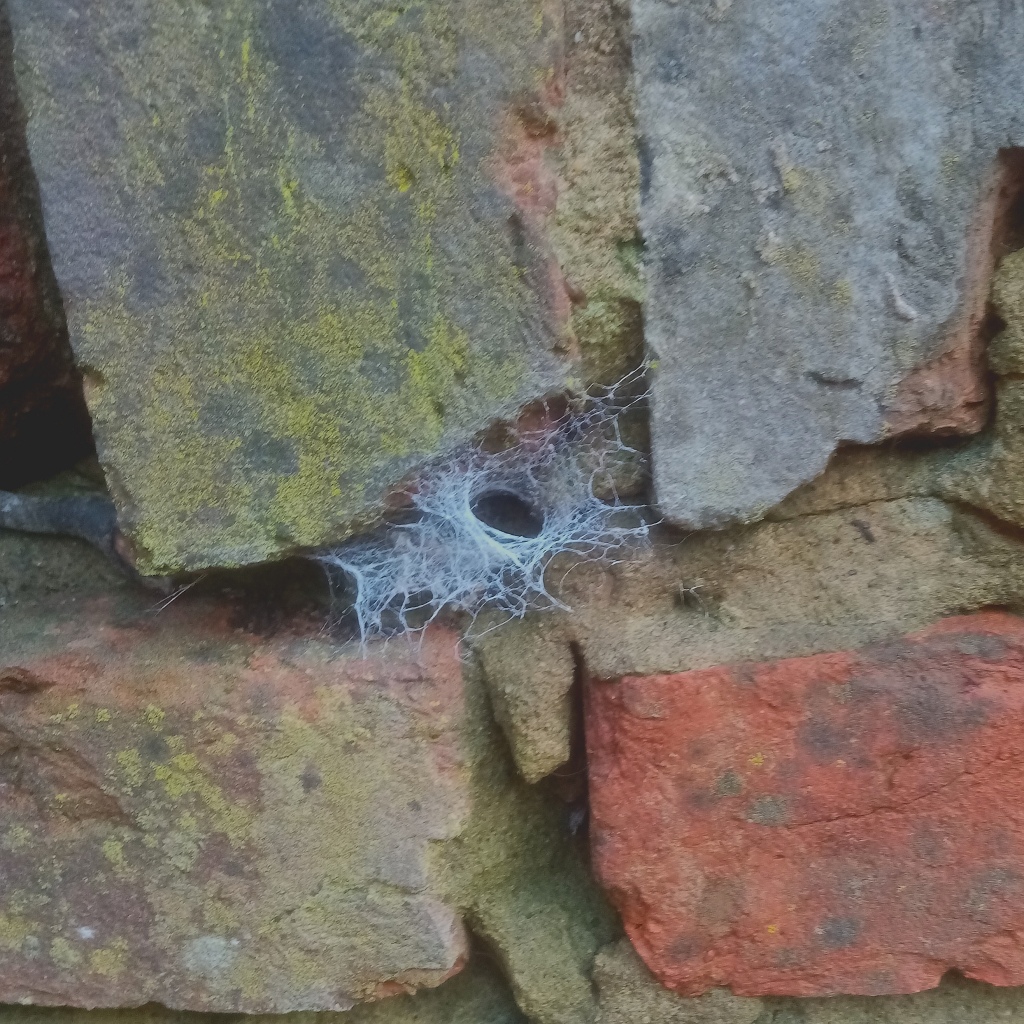
The wall is not going to win prizes for its brickwork, but the cracks and crevices provide shelter for many creatures including a trapdoor spider. It’s probably hibernating a few centimetres back from the doorway.

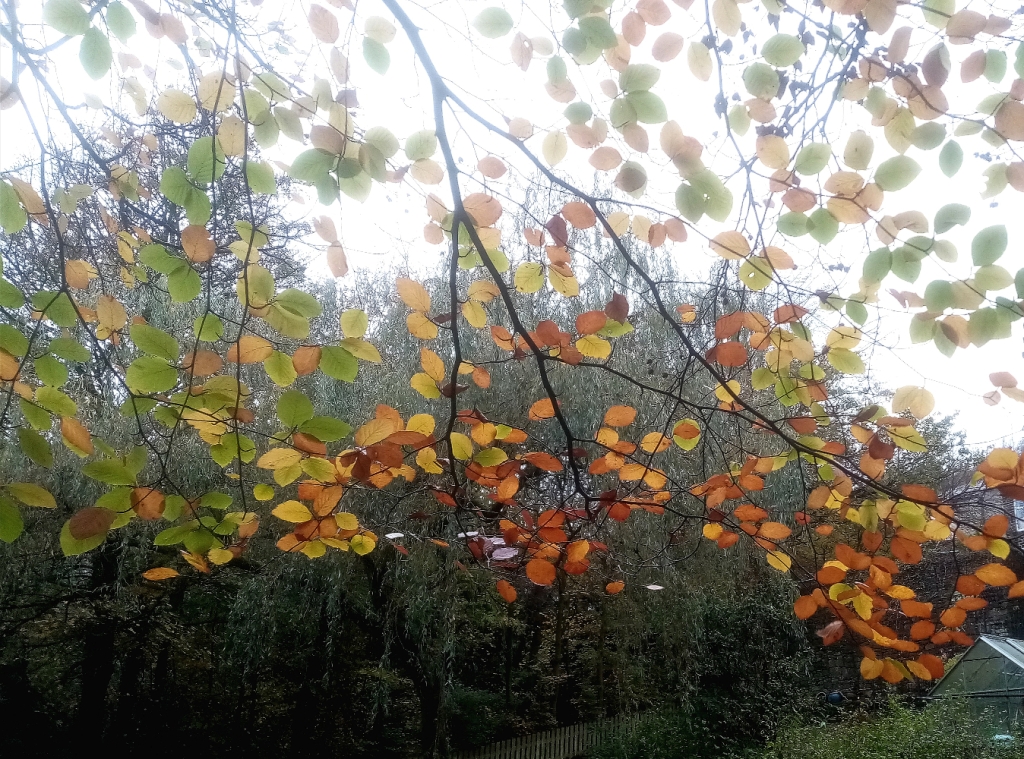
We had gone up North, despite the railway strikes, for an important family funeral. But thanks to the railway strikes, we travelled early and had time for a few reflective walks. The restored Huddersfield Narrow Canal is easy, dry-shod walking; we found warm accommodation in Greenfield village. On a day of showers and sunshine we turned a corner to witness this autumn scene: a watery sun shining through the golden leaves of the beech, the hedge behind it still hardly changed. Can spring be far behind?
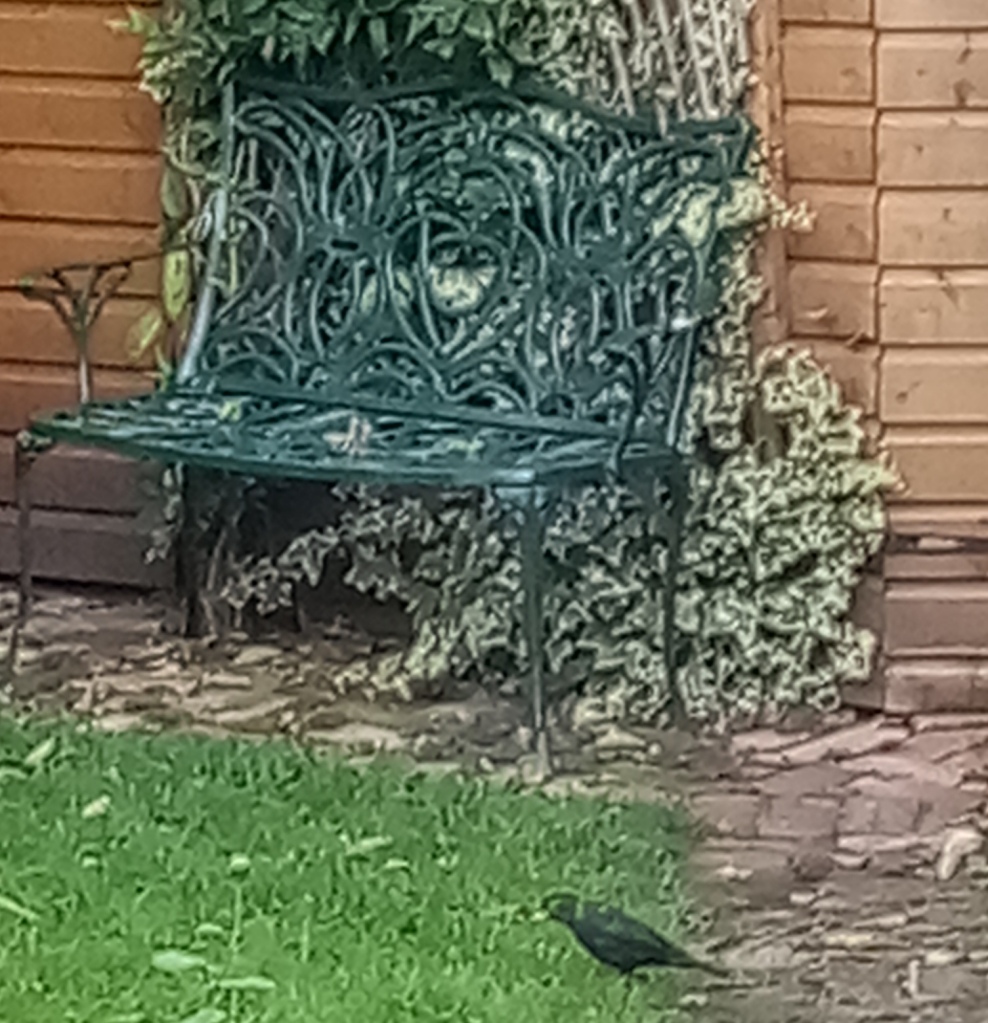
For a few weeks the birds in evidence in town have been jackdaws and other crows, gulls, including one that could not find its way out of St Thomas’ church, and members of the pigeon family. They do things their own way: last week I saw a half eggshell of a wood pigeon, but a town pigeon landed just in front of my bike to retrieve a lost stick needed for nest building on the old post office.
Precious little sight or sound of the song birds until this week. We were sitting under the trees at the Glebe when two robins began to sing quietly to each other just above our heads. Surely a couple. Then a happy surprise when our 4 year old blackbird reappeared. You may just distinguish his identifying white spots.
Happy Autumn!
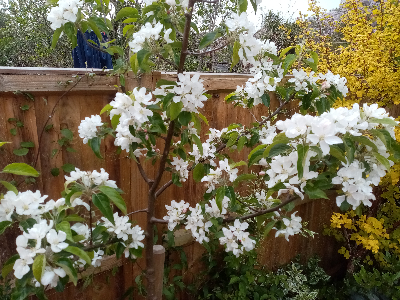
When Mrs T had decided the old lilac tree had to go, it went to keep us warm, thanks to the woodburner. In to replace it came a crab apple called John Downie. A welcome addition to the garden and much friendlier to its neighbours than the lilac, which hogged all the surface water and the light. Maybe we can, at last, grow hellebores here. Whether or not that happens, this is John Downie’s Spring moment!
Come the Autumn and those little branches will be full of deep red apples which make a well-coloured jelly.

There's nothing like the sun as the year dies, Kind as it can be, this world being made so, To stones and men and beasts and birds and flies, To all things that it touches except snow, Whether on mountain side or street of town. The south wall warms me: November has begun, Yet never shone the sun as fair as now While the sweet last-left damsons from the bough With spangles of the morning's storm drop down Because the starling shakes it, whistling what Once swallows sang. But I have not forgot That there is nothing, too, like March's sun, Like April's, or July's, or June's, or May's, Or January's, or February's, great days: And August, September, October, and December Have equal days, all different from November. No day of any month but I have said — Or, if I could live long enough, should say — "There's nothing like the sun that shines to-day." There's nothing like the sun till we are dead.
Edward Thomas.
Edward Thomas challenged his melancholy by getting out of doors, with friends such as Robert Frost but often enough alone. November sun in England, especially against a south wall, or south cliff, is noticeably warming.
Mid-November last year we went walking and foraged damsons, sweeter than they would have been a month earlier, but recorded that in prose, not poetry.
‘There’s nothing like the sun till we are dead’, and then? Why then we shall learn who the sun is like.
And there shall be no night there;
and they need no candle, neither light of the sun;
for the Lord God giveth them light:
and they shall reign for ever and ever.
Revelation 22:5.



Not a megacity, but it’s home ground for our family. The first two pictures show the carpet of cherry leaves near the house we moved into when we came to Canterbury. I was walking by in the afternoon sun. On the return journey, having bought Manchester beer for Mrs Turnstone’s brother, visiting next week, I walked along a stretch of 1830 railway embankment. If it hadn’t been closed down after the Second World War, it would be very busy with people going to and from Whitstable for work and education, not to mention the seaside. Instead a pleasant walk under the trees, with always a chance of seeing a fox – if they are not spooked by teenage boys, released from school and chatting near one of the foxes’ crossing points.
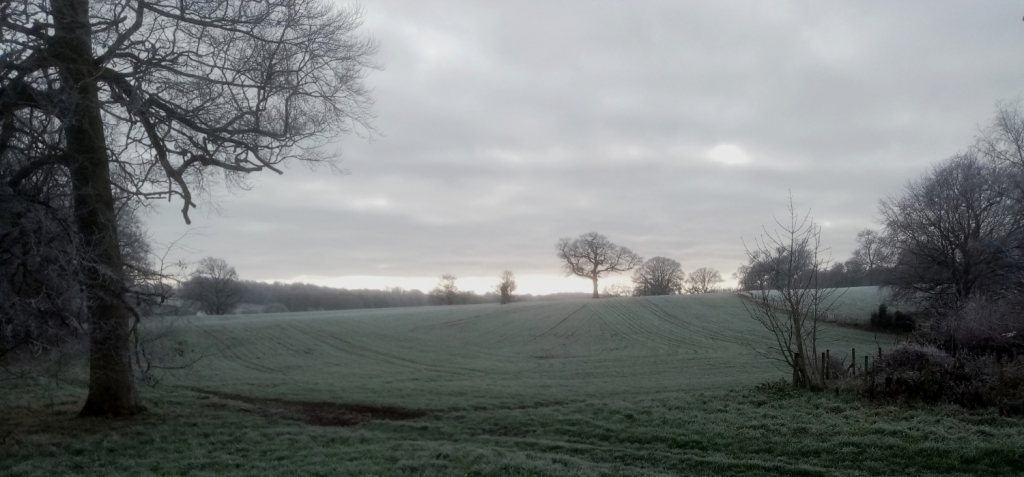
Summer is gone with all its roses, Its sun and perfumes and sweet flowers, Its warm air and refreshing showers: And even Autumn closes. Yea, Autumn's chilly self is going, And winter comes which is yet colder; Each day the hoar-frost waxes bolder, And the last buds cease blowing.
From Goblin Market, The Prince’s Progress, and Other Poems by Christina Rossetti.
There were more frosts and more intense cold in Christina Rossetti’s time. Nevertheless, we have had the first hoar frost of this winter, those last dahlia buds look unlikely to flower; the tents along Canterbury High Street we hope are keeping people safe, and warmer than otherwise they would be, until the shelter opens next month.

September! We are moving into Autumn, fruit, grain harvest, swelling pumpkins … return to school, reluctant scholars yet glad to see their friends. The tender vine suffered from the North’s cold wind last winter, but we have a few bunches of grapes swelling; are they to be food for humans or starlings? Here’s the XVII Century English-speaking Welsh poet, Henry Vaughan.
Who the violet doth love, Must seek her in the flow'ry grove, But never when the North's cold wind The russet fields with frost doth bind. If in the spring-time—to no end— The tender vine for grapes we bend, We shall find none, for only—still— Autumn doth the wine-press fill. Thus for all things—in the world's prime— The wise God seal'd their proper time.

Poems of Henry Vaughan, Silurist, Volume II.